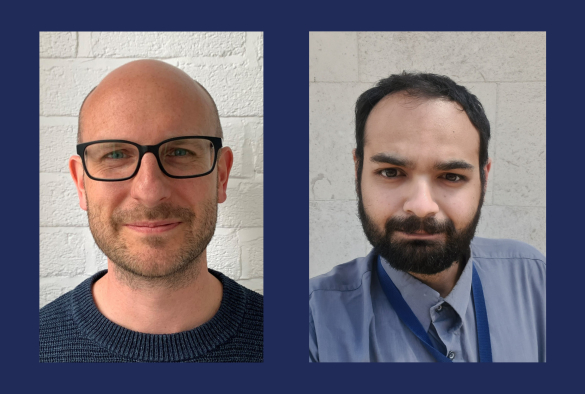Researchers receive funding to foster cross-sector collaborations

Two researchers from the Department of Pharmacology and Therapeutics are among the first recipients of Cross-Sector Experience Awards from the Academy of Medical Sciences.
The awards will enable Professor Ian Copple and Dr Pradeep Harish to work in new sectors for up to a year to gain new skills and foster collaborations that could lead to new innovations.
Professor Copple leads research into the benefits and risks of targeting the Nrf2 stress response pathway, supported by an MRC Senior Non-clinical Fellowship awarded in 2022. He will spend up to half of his time with the world-leading pharmaceutical company AstraZeneca in the role of Hepatic Target Organ Specialist, collaborating with their therapy teams to guide the progression of candidate Nrf2 modulators through the phases of drug development.
Professor Copple said: “This award represents a unique opportunity for me to experience the pre-clinical to clinical transition of drug candidates targeting the Nrf2 pathway from an industry perspective, and to use the learnings to advance the mechanistic and translational aspects of my group’s academic research. Furthermore, in my role at AstraZeneca, I will be well-placed to identify opportunities for the use of the cell and tissue platforms that we offer here in the Human Liver Research Facility, many of which are not accessible by industry other than through external collaborations.”
Dr Harish, who works in gene therapy, will take up the role of assessor in the Department of Innovative Medicines at the UK’s MHRA. Gene therapy offers cures for inherited diseases like muscular dystrophy and haemophilia but faces safety and toxicity challenges. He is currently involved in the ARDAT project, a consortium of 34 partners aiming to make gene therapies accessible and safer. Dr Harish's research focuses on identifying markers to predict therapy safety.
Dr Harish commented: “Establishing a direct collaboration with the MHRA will enable me to visualise the translational journey of gene therapies, through preclinical, clinical and licensing stages of development. It will allow me to complement my contemporary scientific perspective to the medicines regulator, visualise a path-to-market, optimise product specifications and bake in considerations for clinical translation/quality-by-design at every stage of pre-clinical development, and gain first-hand knowledge of what the government regulators expect in terms of product safety”.
Professor Sonia Rocha, Executive Dean for the Institute of Systems, Molecular and Integrative Biology, said: “These awards are testament to Professor Copple and Dr Harish’s research excellence and ingenuity. The awards will drive translation of their research and enable their work to have real life impact.”